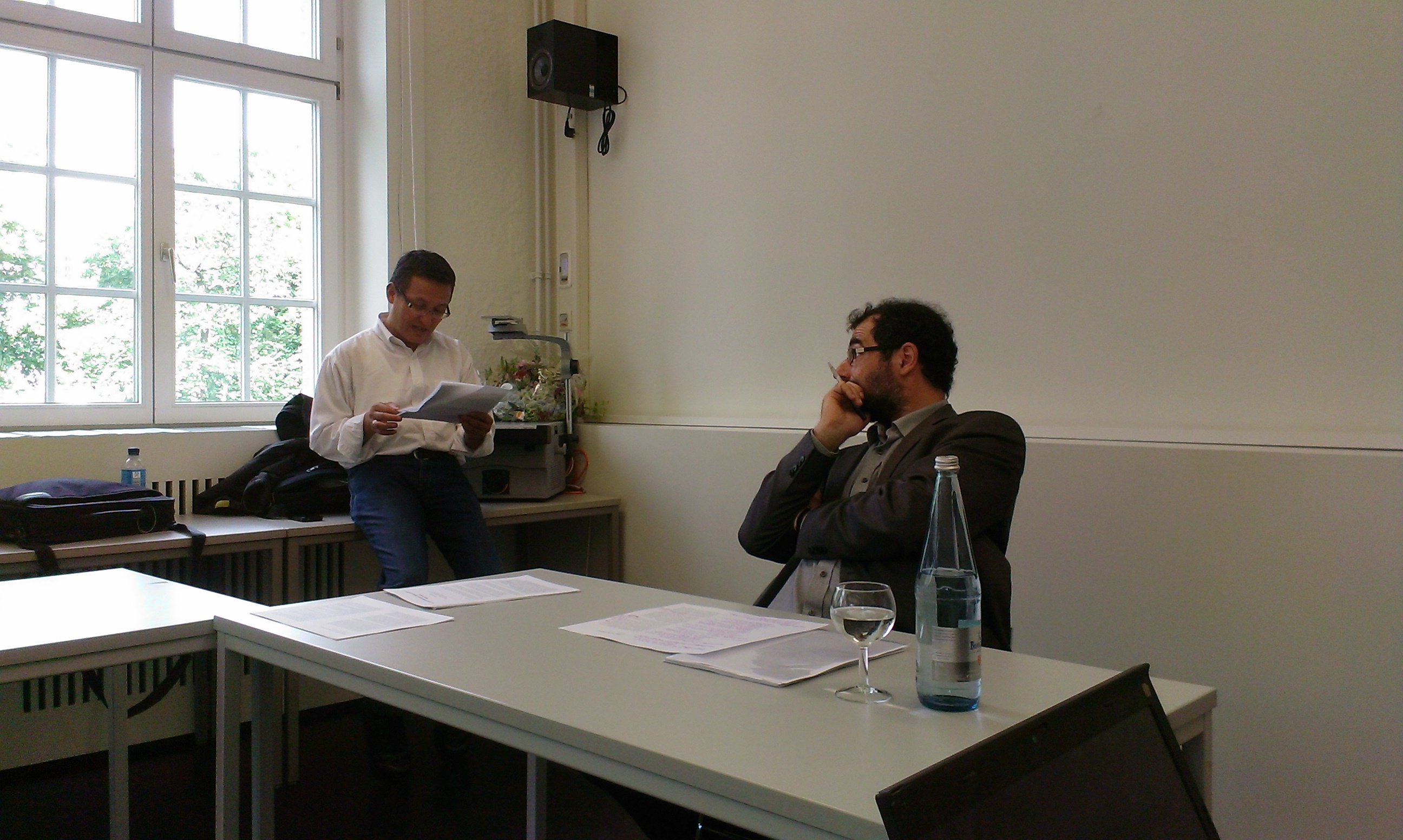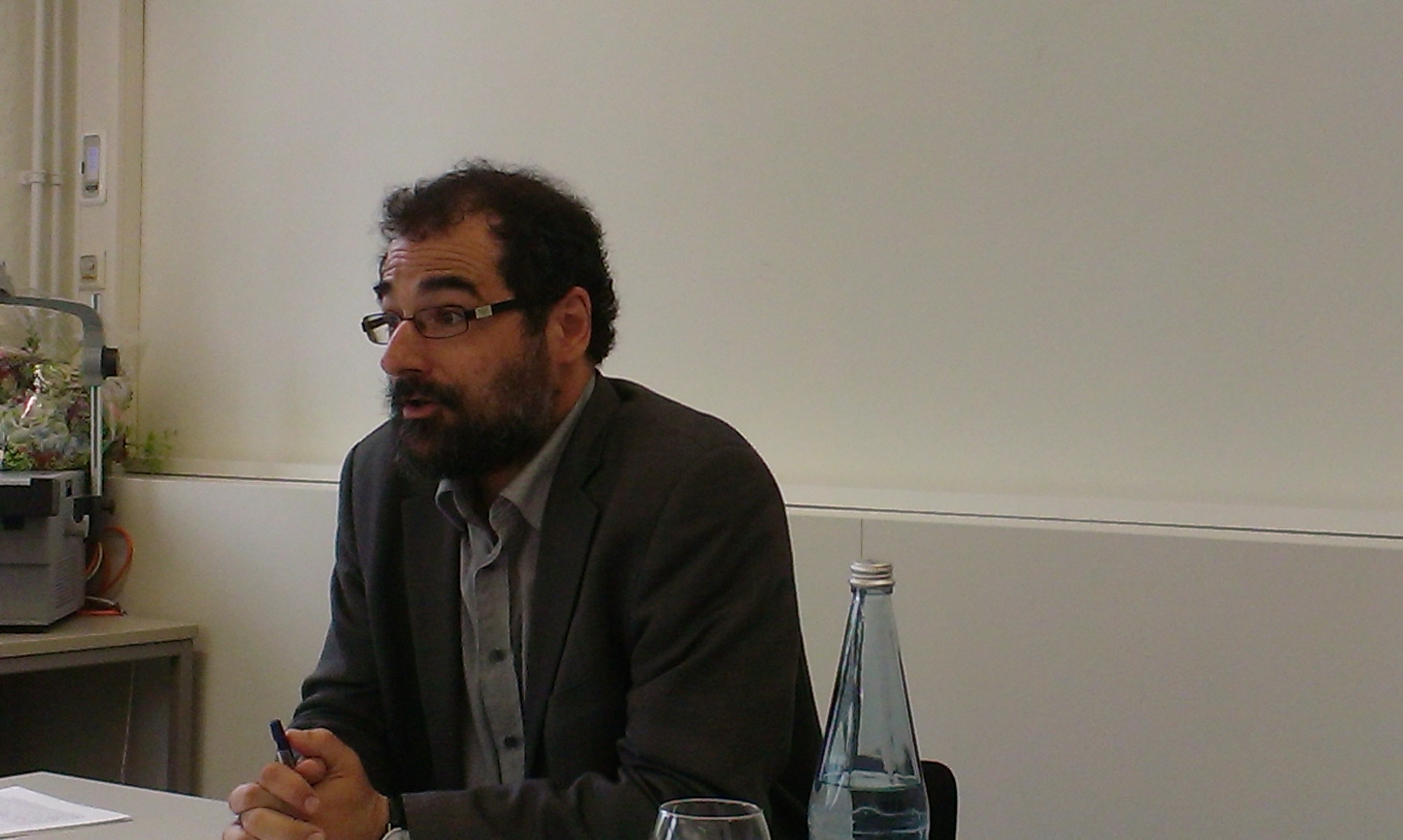Dr. Vincent Eltschinger: “The Yogācārabhūmi’s Systematic Critique of Vedic Ritual Violence (hiṃsā)”
20 May 2014

Photo: Orna Almogi
5th- and 6th-century Buddhist “śāstric” literature reflects interesting and at times formally sophisticated debates between Buddhist intellectuals and Brahmanical ritualists on the issue of sacrificial violence/killing (hiṃsā). This is the case of the Nyāyānusāra (early 5th century?) and the Madhyamakahṛdaya (mid 6th century?) whose authors, respectively Saṅghabhadra and Bhāviveka, criticise early Mīmāṃsaka attempts to dissociate ritual killing from the inauspicious karmic results generally to be expected from murder, ritual or not. In other words, is killing beyond ethical reproach when it is connected to ritual, sanctioned by an authoritative scripture and accompanied by mantras? Saṅghabhadra’s and Bhāviveka’s polemics have been studied by K. Kataoka in a recent paper. However, these Buddhist authors’ critique of the ritualists’ arguments is likely to be indebted to an earlier Buddhist treatise, the Yogācārabhūmi (3rd–4th century), whose paravāda section (dedicated to the critical examination of sixteen allodox or heterodox beliefs and practices) contains a systematic critique of Brahmanical opinions regarding the moral status of sacrificial violence. The present lecture is aimed at exhibiting the sources, the structure and the posterity of the Yogācārabhūmi arguments.
- Click here to download the invitation (PDF)
June 20th, 2014 - 18.00h
Universität Hamburg, Hauptgebäude,
Edmund-Siemers-Allee 1, Raum 118
Free Entrance.
 |
 |
